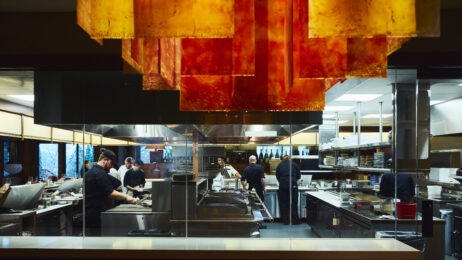A partnership born out of a long-term friendship is how ASAE President and CEO Michelle Mason described the agreement to work together with the association for destinations announced at Destinations International’s Sales and Services Summit in Washington, D.C., during Business Events Industry Week. The plan was to leverage the strengths of two industry associations in the areas of security, and diversity, equity and inclusion (DEI).

Mason met Destinations International CEO Don Welsh when he was CEO of Choose Chicago and she was president and CEO of Association Forum a decade ago. All these years later, the two are still learning from each other and hoping their organizations can benefit from seeing the bigger picture when the destination and association planner perspectives are combined.
“I know for a fact I would not have the level of understanding of destinations had it not been for that early mentorship,” Mason said.
Listen More: What One Thing? featuring Michelle Mason
Conscious Partnering
Welsh called the influence a mutually beneficial one and pointed to his adoption of the idea of creating a welcoming environment based on conscious inclusion.
As the conversation around diversity, equity and inclusion has evolved, Destinations International’s Chief Diversity Officer Sophia Hyder Hock has now shifted to the title of Chief Social Inclusion Officer to more accurately describe the work she is doing and the department is expanding to include accessibility under that umbrella. “It was a big commitment by the board to do this work,” said Welsh.
“Diversity is really about representation and you can quantify that,” said Mason. “Inclusion is about a sense of belonging, a sense of feeling connected and engaged. That is why intentionality is critical.”
Read More: Don Welsh on the Importance of Collaborative Care

“It is more important than ever before to articulate the business and economic case, the innovations possible when you are inclusive,” said Welsh. “We have to be intentional about what we say and what we mean. We cannot water it down.”
Welsh called accommodating the 20% of the population living with disabilities “the next big opportunity for destinations.” He pointed to progress happening in Europe and is bringing resources such as TravelAbility to members to make it easier for aging populations and others in need of accommodations to participate more fully in local experiences. “That’s the next evolution of what a planner is going to start asking in the RFP process, how inclusive are you for people with any type of disability?”
Read More: How to Leverage Destination Accessibility Efforts to Welcome All Attendees
“It’s an opportunity for associations,” said Mason. “Our members are working to wrap their arms around neurodiverse needs as well. That’s why the partnership is more important to leverage resources.” ASAE is already providing tranquility rooms at their annual conference to support those with hidden disability needs so they don’t get overstimulated. “We’re being more intentional now than ever before,” she said.
Risk Management
The two organizations have also agreed to work together on providing resources to manage risk—and the fallout from decisions aimed at avoiding it at all costs. In a world where perception is reality and executive teams can decide to move a meeting based on a newspaper headline, a little perspective can go a long way toward helping planners make informed decisions and communicate those to attendees and leadership.
Breaking: @ASAEcenter and @destintl announce partnership around risk and accessibility. pic.twitter.com/NDoLBEVQy4
— JT Long (@SmartMtgsJT) April 8, 2024
In a country where the majority of states have laws that some consider not aligned with their membership, but the cities they are considering might be much more appropriate politically, planners might find they can do more good by bringing a group than by boycotting the entire state. “This is very important to the next generation coming up in the industry,” said Welsh.
Read More: Weaponization of Travel Addresses Cultural Obstacle Courses
He added, “It is so hurtful to jobs in a community when a group decides to pull a meeting. My only hope is that before people make a decision based on media reports, they go in and talk to people to better understand local implications.”
That is exactly what ASAE did in 2021. Destination experts worked with Mason’s board to find a way to update the existing anti-discrimination clause so it wasn’t as punitive to destinations trying to support their diverse communities.
Another risk being addressed intentionally is the impact of artificial intelligence. A coalition of association CEOs is coming together to discuss the ethical implementation of the tool. “We need the association voice at the table when legislation is being drafted,” said Mason.
Read More: Why It’s Time to Get Serious About AI for Events
The Beginning
Mason and Welsh envision a future where even more shared issues are tackled jointly. “It’s critical with limited resources to come together to share on behalf of the community and deliver value,” said Mason.




